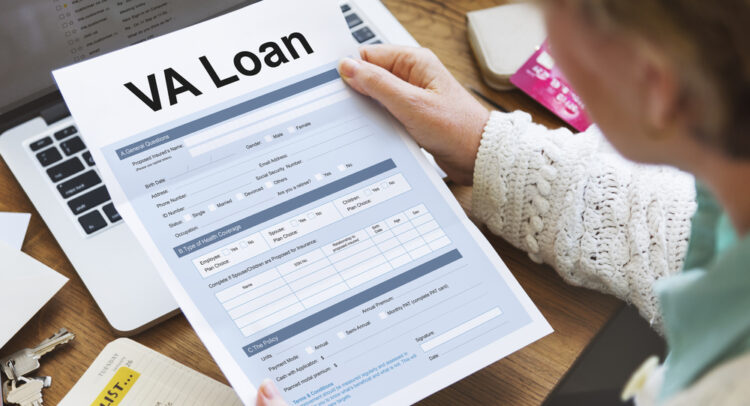VA Home Loans: What To Know?
The U.S. Department of Veteran’s Affairs (VA) offers loan guarantees to private lenders who provide mortgages to active duty services members, military veterans, and certain eligible spouses looking to purchase a primary residence.
VA Home Loans are among the most far-reaching benefits the U.S. government offers its service members and their families. If you qualify, there are multiple advantages over the terms offered through a conventional mortgage, including the ability to purchase a house without a down payment.
Though VA Home Loans are an enticing option for those who qualify, it remains essential to consider the terms and implications of your potential financing. Using the TipRanks’ mortgage calculator will allow you to plug-in different variables to understand how each one impacts both your monthly payments and the overall cost of the loan.
Do I Qualify for a VA Home Loan?
In anticipation of the need to help millions of demobilized soldiers integrate back into society, the U.S. government passed the Servicemen’s Readjustment Act of 1944 (also known as the G.I. Bill) in the final years of World War II. Among the provisions was language designed to assist veterans purchase homes.
Though the initial bill expired decades ago, the U.S. government continues to help veterans become homeowners. VA Home Loans are available for most active military personnel, veterans, and surviving spouses to purchase, build, or refinance a home. Of note, because the VA does not provide the financing directly, specific lenders will have their own criteria for evaluating your credit standing and household earnings.
You can request a VA Home Loan Certificate of Eligibility using the VA’s website, where you will confirm your eligibility for this program.
The Benefits of a VA Home Loan
The main benefits of a VA Home Loan are significant.
- (1) No down payment required: Qualifying recipients have the potential to purchase a home without putting any money into a down payment. For those who have yet to accumulate substantial savings, this makes the purchase of a home suddenly attainable.
- (2) No mortgage insurance: Unlike with an FHA-backed loan, there is no need to pay for mortgage insurance. This can save you thousands of dollars over the lifetime of the loan.
- (3) Competitive interest rates: The interest rates of VA Home Loans are usually at, or slightly better than, those of a conventional mortgage.
- (4) Low closing costs: Closing costs for buyers tend to be lower than those associated with a conventional mortgage, as the sellers are responsible for real estate commissions and brokerage costs.
- (5) Transfer of loan terms: If you decide to sell your home before the mortgage has been paid off, you may be able to transfer your low-interest loan to your buyer. This can be an advantage, especially during periods when interest rates are high.
- (6) Financial counseling: VA Home Loan recipients have access to VA technicians who provide financial counseling if you run into issues making your payments. (All veterans have access to VA-provided financial counseling.)
Are There Any Downsides to a VA Home Loan?
The benefits inherent with a VA Home Loan can be a gamechanger for families looking to purchase a home. With all these plusses, are there any downsides to taking advantage of this program? There could be, so be aware of the following terms:
- (1) VA Funding Fee: Though mortgage insurance is not required, recipients must pay a one-time VA Funding Fee that is based on the size of the loan you are taking. (Note: Some wounded veterans can have this fee waived.)
- (2) Primary residence: The house you are purchasing must serve as your primary residence.
- (3) Fear of paperwork: Though VA Home Loans are familiar entities, some potential sellers fearful of getting bogged down in bureaucracy might be reticent to accept your proposal if they have other bids from those with conventional mortgages (or who are paying cash). In a sellers’ market, this might place you at a slight disadvantage.
- (4) Lack of equity: Buying a house with no down payment means that it will take longer for you to build-up equity in your property. This will also increase the overall cost of your mortgage, as the loan principal and interest will be greater.
Conclusion: Are VA Home Loans Right for You?
VA Home Loans can be a great option for those who are looking to purchase a home, but who have yet to save up the type of sum typically required for a down payment for a conventional mortgage.
At the end of the day, buying a home is more than a question of finances. It really comes down to your overall situation and preferences, and whether you believe you are ready to take on the long-term obligation and responsibility of homeownership.
It is always a wise move to consider all of your financing options, be it a VA Home Loan, an FHA-backed loan, or a conventional mortgage. Using TipRanks’ mortgage calculator can help you understand these different constellations and what financing scenario might work best for you and your family.
Learn money management, and use data-driven stock insights with TipRanks.
















